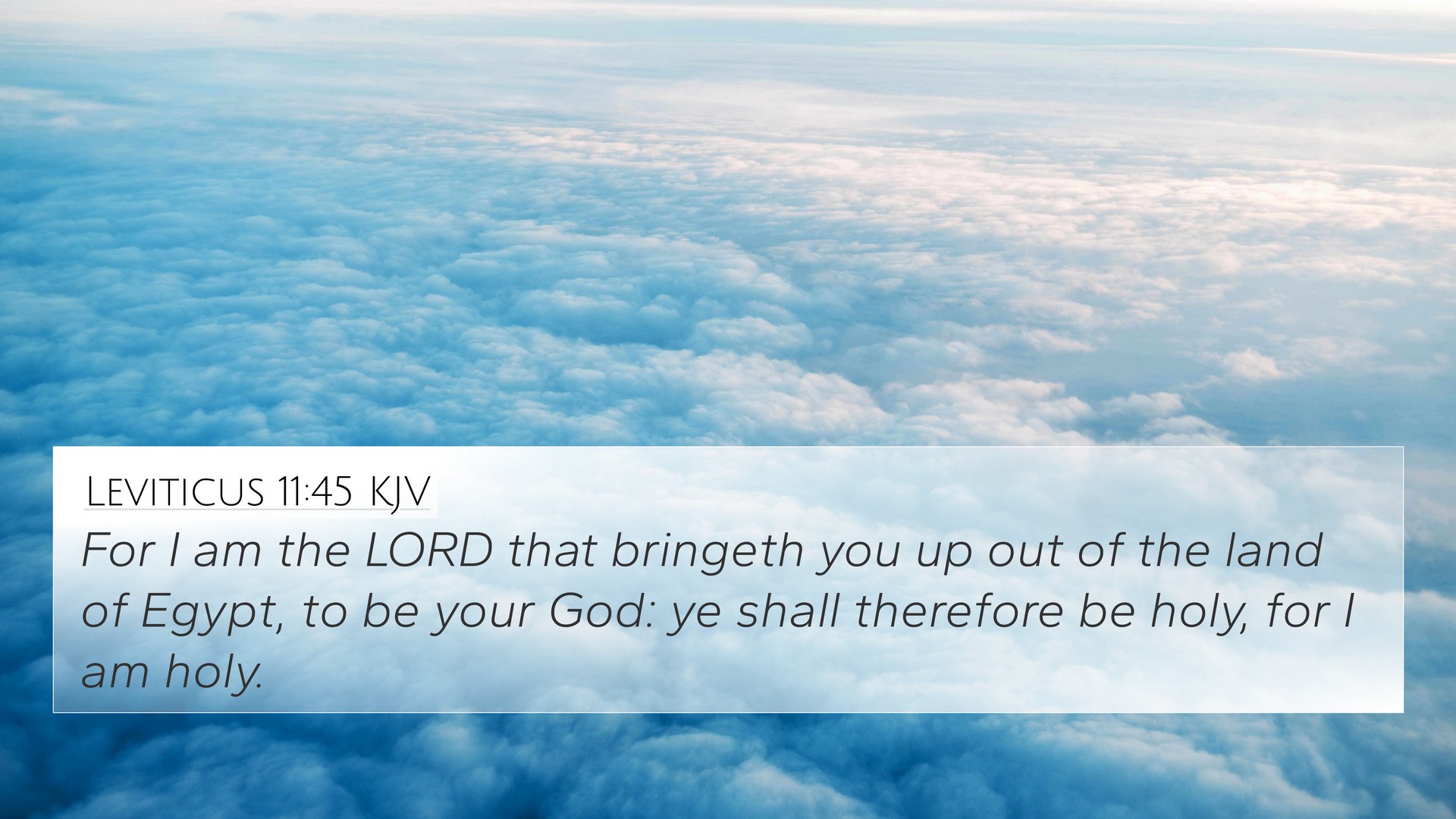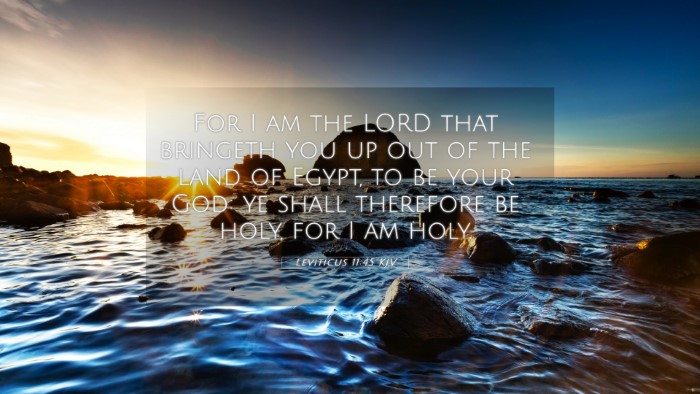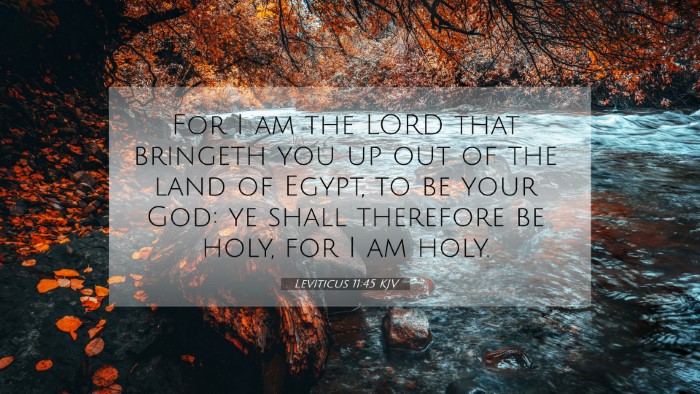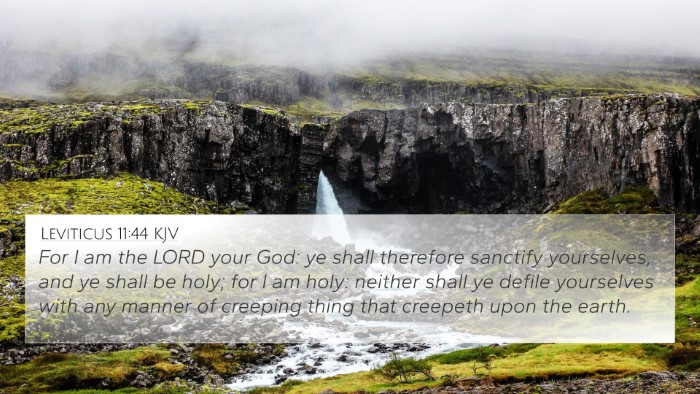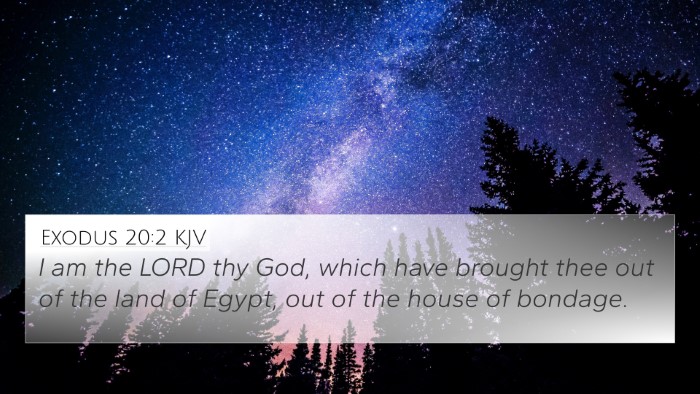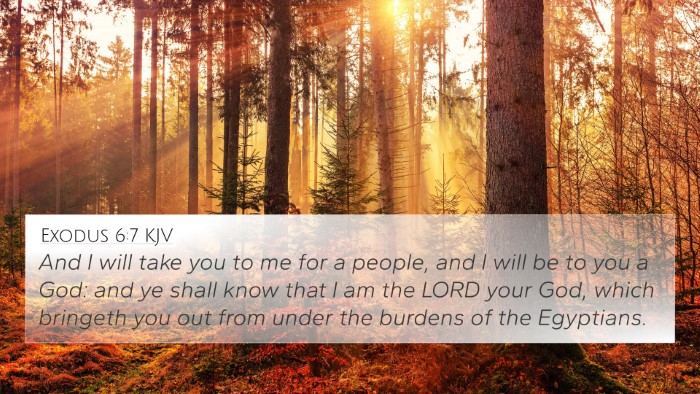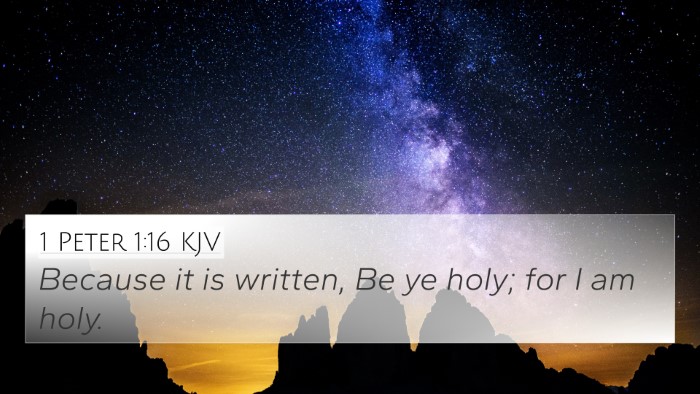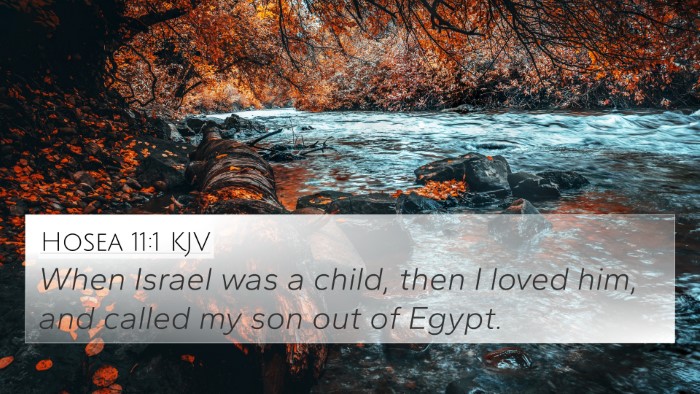Understanding Leviticus 11:45
Leviticus 11:45 states, "For I am the Lord that brings you up out of the land of Egypt, to be your God: ye shall therefore be holy, for I am holy." This verse emphasizes the call for holiness among God's people, highlighting the connection between their deliverance from Egypt and their identity as His chosen ones.
Insights from Commentaries
Matthew Henry's Commentary
Matthew Henry interprets this verse as God's declaration of His nature and His expectations for His people. He underscores that being holy is not just about adhering to laws but embodying the character of God, who is inherently holy. Henry points out that God's deliverance from Egypt should prompt the Israelites to live a life that reflects His holiness in all aspects.
Albert Barnes' Notes
Albert Barnes emphasizes the importance of holiness as a response to God's grace. He notes that God's choice to lift the Israelites out of bondage is a foundational reason for their commitment to holiness. According to Barnes, this call to holiness is rooted in the recognition of God's sovereignty and faithfulness, which should inspire a lifestyle that honors God.
Adam Clarke's Commentary
Adam Clarke reflects on the implications of being "holy." He discusses how this command is a reflection of God's character, and it encourages the faithful to pursue moral and spiritual integrity. Clarke highlights that holiness is an essential aspect of the believer’s life, reinforcing that the call is deeply relational—God desires a relationship with His people, founded on holiness.
Thematic Connections
This verse connects with various themes in the Bible, particularly the call to holiness and sanctification. Below, we outline the thematic connections and cross-references.
- 1 Peter 1:16: "Because it is written, Be ye holy; for I am holy."
- Romans 12:1: "I beseech you therefore, brethren, by the mercies of God, that ye present your bodies a living sacrifice, holy, acceptable unto God, which is your reasonable service."
- Ephesians 1:4: "According as he hath chosen us in him before the foundation of the world, that we should be holy and without blame before him in love."
- Hebrews 12:14: "Follow peace with all men, and holiness, without which no man shall see the Lord."
- 2 Corinthians 6:17-18: "Wherefore come out from among them, and be ye separate, saith the Lord, and touch not the unclean thing; and I will receive you."
- Colossians 1:22: "In the body of his flesh through death, to present you holy and unblamable and unreprovable in his sight."
- 1 Thessalonians 4:7: "For God hath not called us unto uncleanness, but unto holiness."
Cross-Referencing Biblical Texts
The notion of holiness in Leviticus 11:45 promotes meaningful connections between various scriptures throughout both the Old and New Testaments. Here are some insights into how this verse interacts with others:
- Linking Bible scriptures: Leviticus’ call for holiness is echoed in New Testament teachings, emphasizing the continuity of God’s message.
- Scriptural cross-referencing: By examining these texts, we identify a pattern where God's holiness shapes the believer's identity across the covenantal revelations.
- Thematic Bible verse connections: The call to holiness relates to themes of sacrifice, redemption, and the moral imperatives laid upon God's people.
- Bible verses that relate to each other: Relations can be drawn from instructions given in Leviticus to Jesus’ teachings on the Sermon on the Mount, reaffirming moral living.
Practical Applications
The implications of Leviticus 11:45 extend into contemporary Christian living. The following practices can help in applying this scripture effectively:
- Understanding Identity: Recognizing that being called holy is an identity rooted in God's character and the transformative work of Christ.
- Living Experimentally: Seeking to embody holiness in everyday decisions and interactions.
- Community Engagement: Encouraging one another within the church community to uphold values of holiness together.
Conclusion
Leviticus 11:45 serves as a powerful reminder of God's expectation for His people to reflect His holiness in their lives. Through the insights gathered from respected commentaries, cross-referenced scriptures, and practical applications, believers are equipped to understand and fulfill God's call to holiness. This verse positions itself at the center of a greater biblical dialogue that spans both Testaments, fostering a rich exploration into the nature of God and the identity of His children.
